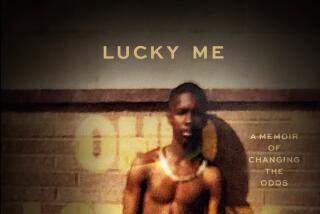This Family Business Turned Deep Freeze Into Riches : Frozen foods: Rich Products, with 1994 sales of more than $1 billion, uses same mom-and-pop bookkeeping system it had at its inception in 1945.
- Share via
BUFFALO, N.Y. — Corporate genealogy for the two Robert Riches--father and son--starts with a pair of cold-feet stories that put them on the road to becoming America’s first family of frozen foods.
Fifty years ago, when frozen food to some people meant road kill along an icy highway, Robert Rich Sr. took two trips from his hometown of Buffalo to New York City, bearing a bowl of white goo and a hand mixer.
He was hunting for distributors for a non-dairy cream developed from soybeans. One trip, the stuff wouldn’t whip up the way he had promised his audience, a roomful of food-industry executives.
Rich blamed it on the bowl, ducked into a kitchen for another, then got nervous and ducked out the door. He overcame his cold feet the next day and arranged another meeting; this time, his cream whipped up beautifully, and Rich won some big customers.
His next trip, Rich packed his cream in dry ice and set the chilly package--by his feet--in his railway sleeper berth. By morning, when he was about to show off the product to food brokers, it had frozen solid.
Rich borrowed a jackknife, hacked off a hunk and thawed it. With false bravado, he boasted his cream was so superior to cow’s milk that it would whip up, frozen or not.
Luckily, it did, and the Rich family, by serendipity, found its niche.
“That’s what got us into the frozen food business,” said Rich, the 82-year-old chairman and patriarch of Rich Products Corp., which celebrates its 50th anniversary this year.
Rich Sr.--the second person inducted into the Frozen Foods Hall of Fame, after Clarence Birdseye--knew he was in at the cusp of a change in American eating habits.
“Housewives no longer wanted to be in the kitchen. They had other things to do. Other options,” he said. “Just look at the number of women who got used to working in World War II.”
The frozen food age was upon America. With its innovative non-dairy goods, Rich Products was poised to capitalize.
In 1945, frozen food sales totaled less than $100 million. Today, industrywide sales have grown to $54 billion a year.
Rich Sr. knows precisely how his company has fared over that time span. He has maintained the same mom-and-pop bookkeeping system since the days when he had a milk run with three horse-drawn carriages and one truck.
He carries around a pocket ledger with the company’s yearly sales figures: 1945, $28,000; 1946, $474,000; 1952, $1.4 million; 1960, $3.86 million; 1976, $100 million. Last year, Rich Products topped $1 billion.
“There are very few family-owned businesses of that size any more,” said Nevin Montgomery, president of the National Frozen Food Assn. “It’s a tribute to the family to be able to maintain control and still grow the company.”
Rich Products applies the mom-and-pop mentality throughout the business. Three generations of the Rich family work there. Much of its growth has come through acquisitions of other family-owned businesses. And Rich Products’ 6,000 workers are called associates, not employees.
“We dropped the E-word,” said Robert Rich Jr., 54, the company’s president. “We want them to feel they have a vested interest here and that they’ll be rewarded for the job they do.”
Dennis Lanning, president of the bakery division, joined Rich Products in 1970, when the company bought his frozen foods firm in Easton, Pa. Rather than bowing out, Lanning and his partners stayed on, drawing on Rich Products’ resources to build the company.
Rich Sr. “is famous for saying, ‘Treat this dollar as though it were your own, because it is.’ We call him chairman and founder, but he’s really been a father-figure to all of us,” Lanning said.
With about 40 such acquisitions since the early 1960s, the company produces 1,700 products, including seafood, barbecued meats, desserts and the world’s first non-dairy creamer, Coffee Rich, introduced in 1960.
Somewhat reluctantly, Rich Jr. joined the executive ranks in the mid-1960s after working odd jobs with the firm since he was a boy. Rich Jr. had thought about careers in the Air Force or the CIA and tried out for the U.S. Olympic hockey team in 1964.
He signed on with the family business when his father offered him the chance to run the company’s operations in Canada.
“Working here was the last thing I wanted to do,” Rich Jr. said. “I saw how focused my father was on the business. It was too narrow for me.”
After he joined the firm, Rich Jr. gained new respect for his father’s business savvy. The relationship changed from father and would-be prodigal son to a partnership between two strong-willed businessmen.
From the start, both agreed they did not want to work for anyone else. Corporate suitors called from time to time, but father and son turned them away.
Although it has operations throughout North America, Asia and Europe, Rich Products remains committed to Buffalo, something the sagging rust-belt city sorely needs after two decades of economic down spin.
“Any community would kill for that kind of continuing commitment,” said Andrew Rudnick, who heads the Greater Buffalo Partnership, the city’s chamber of commerce. “They build a positive corporate culture that spills over into the community.”
The company renovated an old auto and airplane factory into a research and conference center in 1988. It’s a marvelous workplace: Andy Warhol lithographs dot the walls, the facility has its own day-care center and the scent of baked goods hangs in the air.
In the building’s huge lobby, a Curtiss biplane hangs from the ceiling above a lush reproduction of the region’s topography, complete with a six-foot-high version of Niagara Falls. From their modest-sized offices, father and son both have lovely views of the Niagara River and Canada.
In the early 1970s, the company bought the rights to name the new home of the Buffalo Bills, Rich Stadium. Rich Products bought the Buffalo Bisons in 1983 and turned the team into baseball’s premiere minor league franchise, with home attendance topping some major league teams. That same year, Rich Jr.’s son landed a bit part as Robert Redford’s son in “The Natural.”
But baseball has been one of the few failures in company history; Rich Products lost its bid for a major league expansion team.
There’s still talk of buying an existing team and moving it to Buffalo, but for now, Rich Products is tending to its food businesses.
“Being a billion-dollar business puts us in a pretty rarefied place among private companies,” Rich Jr. said. “There’s no limit to how far we can grow. We’re bounded only by our own imagination.”
More to Read
Inside the business of entertainment
The Wide Shot brings you news, analysis and insights on everything from streaming wars to production — and what it all means for the future.
You may occasionally receive promotional content from the Los Angeles Times.










